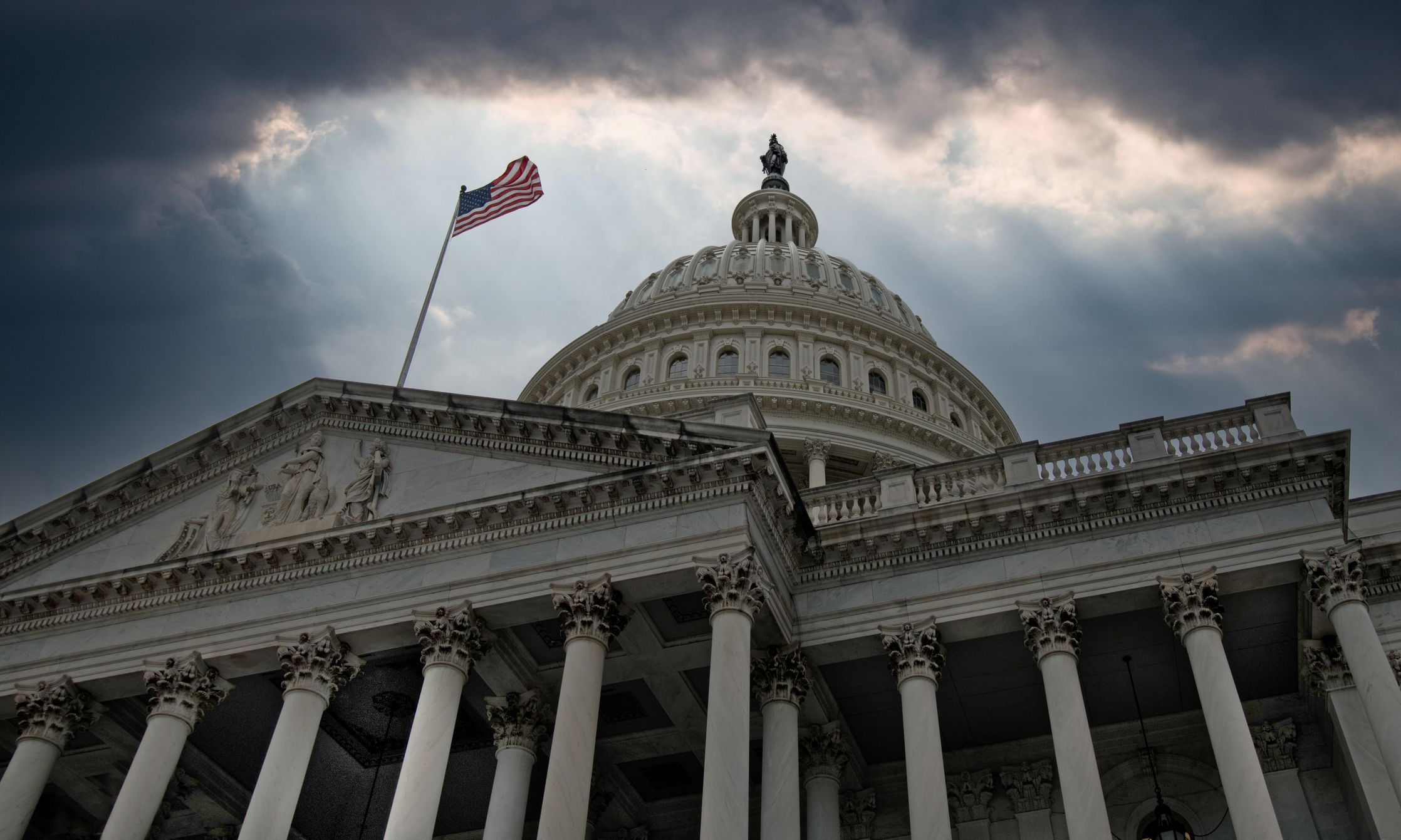In late September, a federal worker based abroad learned that her husband, who is also a federal worker and a military veteran, had “high risk, very aggressive cancer.” Doctors told the couple that the cancer needed to be removed immediately or it would no longer be treatable.
Her husband is covered by TRICARE, the health care program offered to members of the military and veterans. “You basically pay upfront, and then you’re reimbursed,” says the federal worker, who asked to remain anonymous as she is not authorized to speak to the press. “Typically with big surgeries like this, you get preapproval and the payment process is easier,” she says.
But on October 1, just days before her husband went in for surgery, the government shut down. This meant that his claims can’t be paid until the government reopens. “As soon as the shutdown happened I didn’t hear from any more [TRICARE] representatives. I’ve tried to call and can’t get anyone on the phone,” says the federal worker. The couple is out tens of thousands of dollars.
These are just two of the 750,000 furloughed federal workers trying to make ends meet as the government reaches 30 days in shutdown. WIRED spoke with more than a dozen federal workers who have struggled through the last few weeks and described picking up side gigs, taking advantage of free food programs, or working under demoralizing conditions to survive.
Food banks and other organizations like chef José Andrés’ World Central Kitchen have stepped in to try and soften the blow for furloughed feds, offering free meals. But on entering Andrés’ DC restaurant Jaleo, a Justice Department employee says, they were overwhelmed with a feeling of despair. Sitting along the restaurant’s bar were feds quietly eating free sandwiches. “Something about that was really sad to me,” says the Justice Department worker. “It just felt like, wow, we really are just abused people.”
To make up for the missed pay, some workers are picking up side gigs, like babysitting or playing live music, to earn extra cash.
“I’m worried about my mortgage as I don’t have much in savings, but I’m fortunate to make some cash [with] random backup gigs around town and have a partner who can help some. I am very fortunate, so trying to help colleagues who I know don’t have that support,” says one General Services Administration worker.
“I’ve really generously had some friends with babysitting offers,” says a National Institutes of Health worker. “There are avenues in which I can try to make some extra money here and there. But of course, that’s a drop in the bucket, and compared to my normal paychecks, it’s not really cutting it.”
Employees are also concerned about the impact of the shutdown on their families. A Department of Commerce employee tells WIRED that the stress of the shutdown is filtering into life at home. “We are a full fed family. This administration, during this shutdown, is about as anti-family as I have seen any public institution be,” they say, noting that the drain on morale has made it hard to keep things light at home. “The one suffering? Our kid. We do our best to talk through it, and we have a good history of resiliency around big moves, but we know our kiddo isn’t even getting close to the best that we could be doing for her.”
“We’re making do with less while telling our kids why we can’t afford certain things right now,” a Department of Labor employee tells WIRED, who says that with their income eliminated, their family has lost 65 percent of its income. “We are asked daily if we’re going to visit family out of state for Thanksgiving, and we say we don’t know.”
Even for the “excepted” federal employees who are still working (with or without pay), the picture appears bleak. Without other “non-essential” staff, federal workers tell WIRED it’s impossible to move projects forward, meaning that even when the government reopens, systems will likely be backlogged. “Paperwork is piling up and will take a lot of time to untangle, just like during the Covid snarl,” says one employee at the Internal Revenue Service. “We verify certain statuses for government contractors, nonprofits, and state and local services, like firefighters and police, so they can receive subsidies to keep them open. It is already affecting them and will only get worse.”
One employee at the Social Security Administration says that their whole team has been working without pay during the shutdown. “Furloughed employees may be able to claim unemployment compensation or seek temporary employment,” they say, but excepted employees can’t do that. “We have all the costs associated with working, such as commuting costs and daycare expenses, without the paycheck to cover these costs.”
And while federal workers are supposed to receive back pay when the government reopens, they’re going into debt just to make it through each day. “We will not be compensated for the interest we pay on our credit cards, nor for the hit our credit scores take,” they say.
A FEMA worker tells WIRED that without savings, they’ve had to charge most expenses to a credit card; they applied for a 0 percent interest shutdown loan from a credit union, but are still waiting for the cash to hit their account. The government, they said, has not been helpful in providing resources.
“All the info I’m getting is from grassroots groups,” they said. They recently learned about a possible credit from the Salvation Army that would help pay utilities and are signing up for that.
“Last week, I actually thought, what if it never reopens? It doesn’t seem like anyone is working for it to reopen, and the impacts aren’t being felt by the general public,” says an employee with the Department of Housing and Urban Development (HUD). “If it does reopen, will they repay us?”
Some government workers first looked at the shutdown as a welcome reprieve from the chaos of the last 10 months; amid an Elon Musk-tinged takeover, they’ve weathered several rounds of RIFs, or reduction in force, emails encouraging resignations, and taken on heftier workloads to compensate for the smaller workforce already this year.
“This is the only breath and moment of happiness I’ve felt in almost a year, and the guilt of admitting that eats me alive, when I’m not able to keep myself numb from it,” one GSA worker tells WIRED. For many, that relief faded when it became clear that the shutdown wasn’t ending anytime soon.
“When the shutdown began, I was grateful for downtime. Hearing the birds singing during the day brought tears to my eyes,” says the HUD employee. “I thought I could rest, get ahead on Christmas shopping, and cover some days the kids are out of school. I’ve been through this. But as it progresses with no end in sight, I’m scared to spend money.”
The federal worker abroad says that the shutdown has been “disheartening” and enraging. Like many federal employees who spoke to WIRED, she says she doesn’t blame the Democrats for the shutdown, but is instead looking at Mike Johnson, the speaker of the House. “If I missed deadlines on my budgets, like he has, and if I just decided not to come into work and locked the door to my office, I would get a performance improvement plan, and I would have to prove that I could do my job. And if I didn’t do that, I would be fired. We took the same oath, we’re both federal employees. He is getting paid. I am not. He is getting health care. I am NOT.” (Johnson’s office did not reply to a request for comment as to whether he is still collecting his paycheck.)
“I met my husband at the entrance of the East Wing,” she added. “It’s gone. And I feel like the rest of the country is going with it.”
Additional reporting by Molly Taft.




